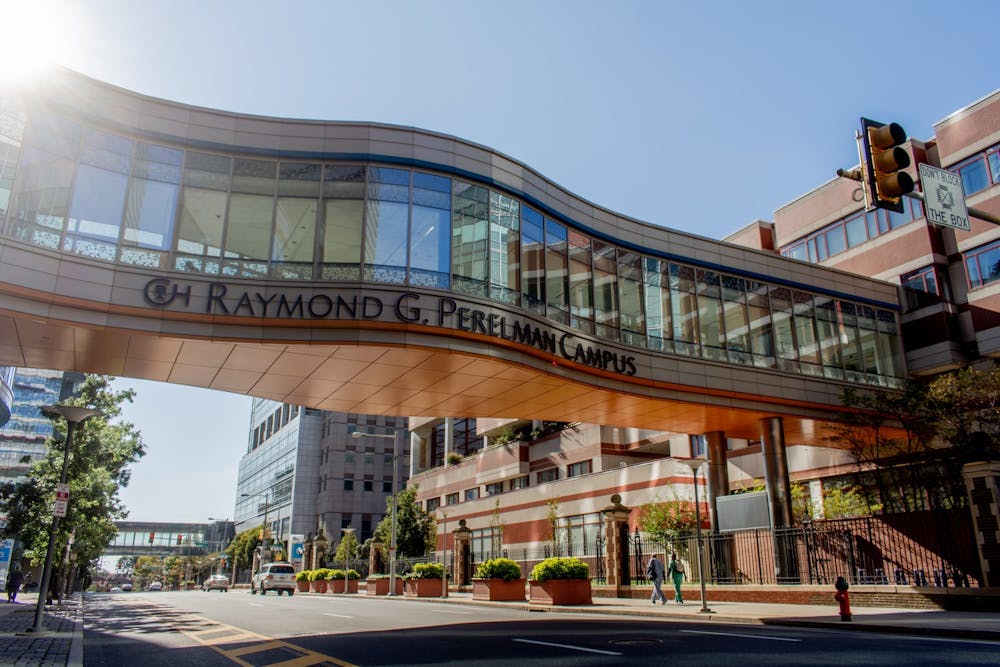
Applications to the Perelman School of Medicine have increased by 21% since last year.
Credit: Max MesterPenn received 7,325 applications this year to its Perelman School of Medicine for about 150 spots — a 21% jump in applicants compared to the previous admissions cycle.
Many prospective students were inspired to apply this year due to the COVID-19 pandemic and the need it has created for healthcare workers and services, the Perelman School of Medicine’s admissions office wrote in a Jan. 17 emailed statement to The Daily Pennsylvanian. Most students either recounted firsthand experiences with the virus or expressed increased motivation to pursue health care following stories of patients’ struggles and frontline workers’ heroism in their applications, according to the email.
“There is a sense of respect and in some cases newfound respect for health care workers, for scientists, for this idea that during a pandemic, when so many other aspects of life were unavailable or deemed nonessential, that the one source of inspiration was the role of health care workers, of doctors and nurses on the front lines helping people get through this frightening time,” Neha Vapiwala, associate dean of admissions at the Medical School, told The Philadelphia Inquirer.
The dramatic surge follows an upwards trend in applications across many medical schools this year, with the number of applications up 18% this year over last year according to the Association of American Medical Colleges. This nationwide trend, commonly referred to as the "Fauci Effect," was also observed in institutions like Stanford University School of Medicine and Boston University School of Medicine.
Dr. Vapiwala and the Perelman admissions team said that this pattern of increasing medical school applications has previously been observed in times of economic recessions.
“Many of [the applicants] may have already had aspirations for a career in health care but the pandemic canceled their original plans for 2020 and potentially accelerated their plans to apply,” Dr. Vapiwala said.
First-year medical student Olivia Palmer said she knew she wanted to be a doctor since the early years of her undergraduate education at Boston College when she shadowed physicians. Palmer had already begun her process of applying to medical school when the COVID-19 pandemic hit the nation in mid-March, an event she said transformed her outlook on what her future career as a physician will look like.
Before arriving at Penn, Palmer began working with AmeriCorps, a voluntary civil society program, at a federally qualified community health center called Boston Health Care for the Homeless Program, where she focused on the social service aspect of health care as the center's case manager.
She found that her role at the center quickly and drastically changed when the pandemic hit the United States in March. After working in COVID-19 relief response teams and quarantine units for COVID-19-positive individuals experiencing homelessness, Palmer reminisced about her job, which she said threw her into the “thick of what it meant to be in health care in a time like this.”
“The COVID-19 pandemic made clear to me that equity and advocacy had to be a mainstay in my future career,” Palmer said.
Palmer found that the pandemic-related experiences also strongly tipped her peers at Perelman School of Medicine towards pursuing medicine as a career. However, she found that a consequence of the pandemic was that she was not able to interact with Penn Medicine patients and work in the hospital as she normally would be able to, as most learning has been conducted virtually.
“It's really been a unique experience to be learning these things without having the direct patient interaction that I think drew most of us to medicine, but I know, all of us under it are very much sure that doing classes from home is the most important thing to get through this pandemic," Palmer said. "That very much fits in line with who we want to be as future physicians as well.”
Vapiwala noted that while it is too early to tell how the pandemic will impact application trends further into the future, she believes that it has the potential to continue inspiring students to strongly consider a career in medicine for years to come.
“For now, this trend is one of the silver linings of the pandemic — we have a new generation truly inspired to enter health care for altruistic reasons,” she said.
The Daily Pennsylvanian is an independent, student-run newspaper. Please consider making a donation to support the coverage that shapes the University. Your generosity ensures a future of strong journalism at Penn.
Donate







